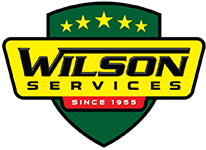Introduction to Lake Septic Systems
Lake septic systems are a critical component of many lakeside homes, offering a method to treat and dispose of household wastewater in areas without access to municipal sewer systems. Understanding the specifics of these systems is essential for homeowners to maintain a healthy, environmentally-friendly, and efficient waste management system. Wilson Services is here for all your lake septic system needs! From septic inspections in Sussex county to maintenance and septic tank repairs, we are your one-stop-shop for all your septic needs in Sussex county and the surrounding area. Give us a call today or keep reading to learn more!
What are Lake Septic Systems?
Lake septic systems are on-site sewage treatment structures commonly used in lakefront properties. These systems treat and dispose of household wastewater through a combination of natural processes and technological solutions. They typically consist of a septic tank and a drainage field, also known as a leach field.
Components of a Lake Septic System
- Septic Tank: The wastewater from your home flows into the septic tank, where heavy solids settle at the bottom, and lighter materials like fats and oils float to the top. Bacteria in the tank help break down these solids.
- Drainage Field: The partially treated water then moves from the tank to the drainage field. Here, it percolates through the soil, which further treats the water by removing harmful bacteria, viruses, and nutrients.
Importance of Proper Maintenance
Regular maintenance of lake septic systems is crucial to prevent system failure, which can lead to environmental pollution, particularly in the sensitive ecosystem of a lake. Homeowners should have their septic system inspected by professionals at least every three years and pumped as recommended, usually every three to five years.
Do’s and Don’ts for Maintaining Lake Septic Systems
- Do: Conserve water to reduce the load on your septic system.
- Don’t: Flush non-biodegradable items, as these can clog your system.
- Do: Divert rainwater away from the septic drainage field.
- Don’t: Plant trees or large plants near the septic system, as roots can cause damage.
Impact on the Lake Environment
Lake septic systems, if not properly maintained, can have a significant impact on the surrounding lake environment. Leaking or poorly treated effluent can contaminate the lake, affecting water quality and aquatic life. Nutrients like phosphorus and nitrogen from septic systems can lead to excessive algae growth, which depletes oxygen in the water and harms fish populations.
Best Practices for Environmental Protection
- Regular inspection and maintenance.
- Use phosphate-free detergents and cleaners.
- Avoid using garbage disposals excessively, as they can increase the load of solids in the tank.
Legal and Regulatory Considerations
Homeowners should be aware of local regulations and codes regarding lake septic systems. Many areas have specific requirements for the installation, maintenance, and inspection of these systems to protect the environment and public health.
How To Keep Your Lake Septic System Compliant
- Obtain necessary permits for installation or major repairs.
- Follow local guidelines for system design and placement.
- Keep records of maintenance and inspections.
Call Wilson Services Today For All Your Lake Septic System’s Needs!
Lake septic systems are an essential part of lakeside living. Proper understanding, maintenance, and care of these systems are vital to ensure they function effectively and do not harm the surrounding environment. By following best practices and staying informed about local regulations, homeowners can ensure their lakefront property remains a beautiful and safe place for years to come. Don’t wait until it’s too late, call Wilson today!

Recent Comments